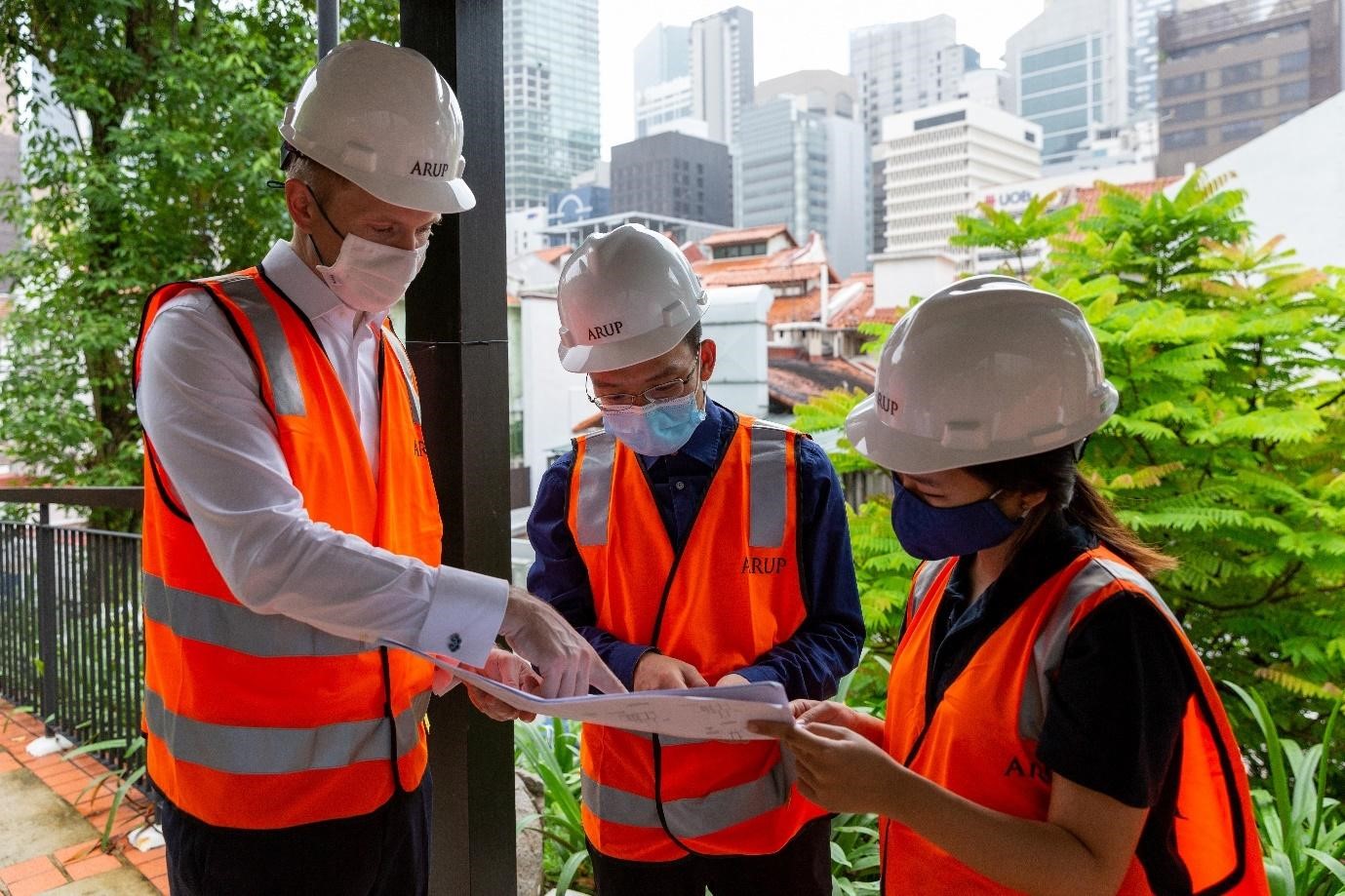When Mr Muhammad Adib bin Zailan was a full-time national serviceman in the Singapore Civil Defence Force, he was inspired to forge a career in the force. Alas, his severe myopia ended that dream.
Today, Mr Adib, 27, finds a fulfilling career as a Building Information Modelling (BIM) specialist at China State Construction Engineering Corporation instead. He has been involved in building healthcare facilities, such as the new emergency medicine building at Singapore General Hospital.
While he is no longer on the frontline, he is still able to contribute to the well-being of others. “I feel I have come full circle,” he shared.
In his role as a BIM modeller, he uses the powerful visualisation software to integrate drawings by multiple stakeholders, giving each party a clear vision of how their designs complement one another.
BIM also helps Mr Adib use his time more effectively. It was most handy in one project that had a change in specifications for more than a thousand doors across seven blocks. Before the use of BIM, it would have been a laborious task of manually altering each drawing. With BIM, it was done with just a few clicks of a button.
Such use of technology is but one of many examples in the Built Environment (BE) industry, which has been further driven to pursue transformation and innovation as the pandemic affected labour inflows and productivity.
Through digitalisation, the sector can build faster and smarter – saving time and helping the environment while achieving better business outcomes with greater productivity.
SKILLS EMPOWER
Speed is essential in the BE sector, where tight deadlines are the norm. To work faster, digitalising laborious processes boosts productivity significantly.
For Ms Ong Shiu Jern, 25, a structural engineer at global design and engineering consultancy Arup, optimising time is a crucial reason to obtain digital skills.
|
|
 Ms Ong Shiu Jern and her Arup colleagues studying blueprints for a construction site. Photo credit: Arup Ms Ong Shiu Jern and her Arup colleagues studying blueprints for a construction site. Photo credit: Arup
|
|
She decided to hone her coding skills by taking up a Specialist Diploma course in Computational BIM at the Building and Construction Authority Academy (BCAA). Now, she is able to automate more of her day-to-day tasks, such as cross-checking drawing lists.
She also developed expertise in building custom 3D modelling components across different platforms, resulting in more accurate data and coordination.
The best thing about acquiring new digital skills is the ability to spend less time on tedious tasks that are now done by technology, enabling her to do what she loves – producing better quality engineering design.
“Engineering is quite limitless,” said Ms Ong who graduated from BCAA together with Mr Adib in December 2021. “I can never finish learning all of it, so it feels like there is enough of it to keep me interested in a lifelong career.”
Being comfortable with digital tools also gives her an advantage in advocating for sustainable initiatives.
Using advanced software, her employer Arup is able to determine the environmental impact of decisions on assets through carbon calculations. She recalls how such data contributed to a client reversing a decision to demolish a building and opting to refurbish it instead.
By constantly acquiring new skills, she feels empowered – not just in pushing herself to be a better structural engineer, but also to create new possibilities for the sector.
“(Given) how companies and the government are willing to invest in innovation, there’s a sense that if there’s a good idea and you want to make it real, you actually could,” she noted.
SKILLS UNITE
For Mr Adib, what fascinates him about the BE sector is how multiple disciplines – such as architecture, engineering and facilities management – converge.
|
|
 Mr Adib (far left) with his BCAA course mates. Mr Adib (far left) with his BCAA course mates.
|
|
“There’s a constant wheel of knowledge and bouncing off of ideas that I find invigorating,” he said. Technology is an enabler to bridge these fields that might otherwise be kept in siloes.
For example, BIM allows technical and construction teams to coordinate better, ensuring various drawings across disciplines are well-aligned for a successful project.
There is an added benefit. Instead of having to pore through and manually update each drawing, BIM gives Mr Adib pockets of rest from the screen while calculations are running, allowing him to “stand up and decompress”.
Most importantly, Mr Adib, who obtained a Diploma in Architecture (Technology) from BCAA, believes upskilling not only helps BE professionals to carry out their jobs effectively. It also improves their career prospects as they keep pace with new digital technologies.
“Learn as much as you can, as the industry moves quickly to catch the next technology wave,” he said.
Find out more about the programmes available at BCAA.